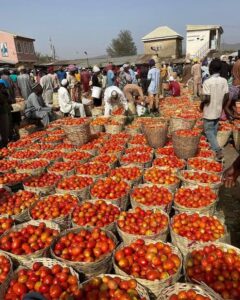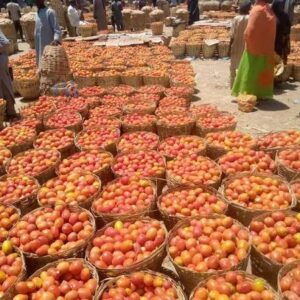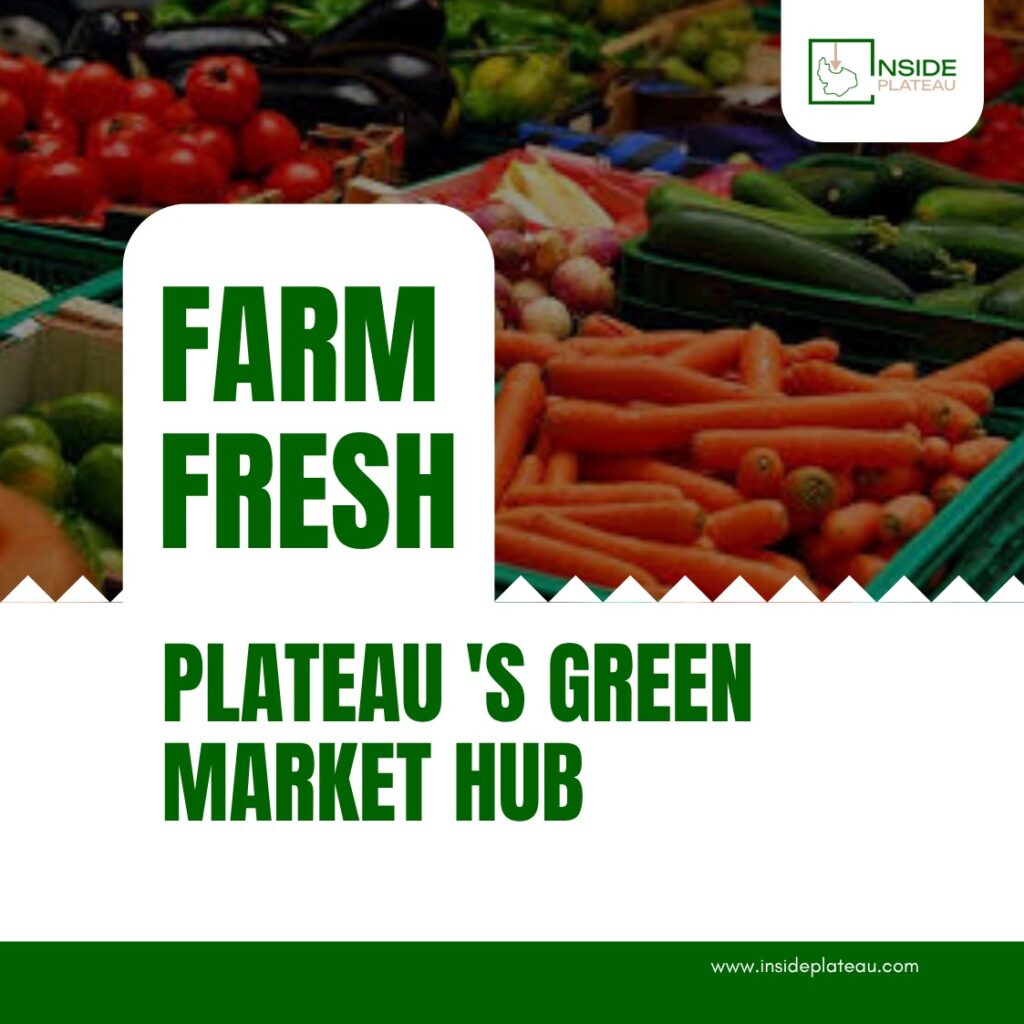This article is dedicated to every son and daughter of the Plateau, to the farmer who sweats under the sun, and the trader who ensures food reaches all corners of our nation. Plateau State is the Heart of Nigerian Produce, and our markets prove that fact.
Our success in agriculture is not a secret—it’s a gift from nature. Plateau State is affectionately called “The Home of Peace and Tourism,” but it should also be called “Nigeria’s Natural Farm.”
Unlike the hot, climate conditions in most parts of Nigeria, the Plateau has a unique, high-altitude microclimate. The average temperature in the state is refreshingly cool, ranging between 13∘C and 22∘C. This great weather, combined with rich, volcanic soil, creates the perfect environment for crops that struggle in other parts of the country.
This is a verified fact: Plateau state is undisputedly the champion of Irish potato production in the country, as we astonishingly contribute over 80% to 90% of Nigeria’s total supply. Our climate is perfect for potatoes. This made the Federal Government establish the National Root Crop Research Institute (NRCRI) station at Kuru, which is specifically for potato research. This natural advantage is the foundation of our wealth.
🍅 The Power Hubs: Our Economic Lifelines
Our markets are not just places where things are bought and sold; they are the crucial exchange points where the hard work of rural communities turns directly into cash, fueling the local economy. They are the heart of a massive, sophisticated logistics network.
🥔 The Plateau Potatoes Hub
When you hear the word potatoes, you must think of Bokkos. This local government area (LGA), alongside Mangu, is the headquarters of potato farming in Nigeria.
The Scale: The Bokkos market handles tonnes of the famous Plateau Irish potato every single day. These potatoes are prized nationwide for their large size, clean appearance, and excellent flavour.
The Impact: This market ensures that money circulates directly within the rural area. Farmers from nearby villages can sell their produce, packed in traditional jute sacks, and immediately receive payment, which supports their families, school fees, and farm inputs for the next planting season. The profitability of Irish potato farming is high; studies show that farmers can achieve a net income of around ₦604,245.81 per hectare, making this market a generator of real wealth.

2. The Red Gold Junction: Farin Gada Tomato Market (Jos)
Farin Gada in Jos is arguably the most important tomato hub in all of North-Central Nigeria. It is a symbol of commerce and colour.
The Volume: This market is constantly flooded with massive baskets of fresh tomatoes and peppers, grown not just in Jos North/South, but also trucked in from major production zones like Mangu, Bassa, and Barkin Ladi LGAs.
A National Link: Farin Gada is the critical bridge connecting Plateau’s farms to distant consumers. Traders from as far as Lagos, Port Harcourt, and Kano rely on the quality and volume available here. The daily flow of goods and money through Farin Gada has led to the development of an extensive, though informal, inter-state logistics network—truck drivers, head porters (alabaru), and middle-men whose livelihoods depend entirely on this bustling market.
Economic Fluctuation: The market clearly shows the economic reality for our farmers. For example, during times of dry-season bumper harvest, prices can tumble dramatically—a large basket can drop from ₦31,000 to ₦15,000 in just a few months. This highlights the urgent need for better storage and processing facilities to protect our hardworking farmers from huge losses.

3. The Central Aggregator: Pankshin Tomatoes Market
For our farmers in the central and northern senatorial districts, the Pankshin market provides a crucial, closer avenue for trade.
Regional Strength: This market efficiently handles the tomatoes and high-value vegetables grown in the Pankshin region, preventing farmers from having to travel longer distances to the Jos metropolis. It is a local champion that secures regional food security and economic activity.

🥕 More Than Potatoes and Tomatoes: The Abundance
While Plateau Potatoes and Tomatoes are our star crops, our cool climate allows us to grow stunning varieties of high-value crops that are very rare or difficult to grow anywhere in Nigeria.
Crop Category Specific Produce Key Production LGAs Unique Fact
Root Crops Irish Potato, Sweet Potato, Cocoyam Bokkos, Mangu, Jos South, Barkin Ladi Plateau supplies over 80% of Nigeria’s Irish Potato.
Specialty Vegetables Cabbage, Carrots, Broccoli, Cauliflower, Radish Mangu, Bassa These thrive in the near-temperate climate, ensuring premium freshness.
Grains Fonio (Acha), Maize, Millet, Guinea Corn Bokkos, Barkin Ladi Acha is a highly nutritious, indigenous grain grown extensively in nine LGAs.
Exotic Fruits Strawberries, Apples Jos and surrounding high-altitude areas These are high-value crops that leverage the cold weather.
🤝 The Vibe: Culture and Community
The true magic of a Plateau market is the atmosphere—it’s an authentic slice of our life.
The energy is infectious. It’s a symphony of sound and sight: the greetings exchanged in Hausa, Berom, Afizere, Tarok, and others, the rhythmic clanging of the scales, and the rich palette of colours from our vibrant produce. Here, commerce is personal; the relationship between the buyer and seller, rooted in mutual respect and the good-natured art of haggling, strengthens our community bonds.
When you step into Farin Gada, Bokkos, or Pankshin, you are not just buying food. You are participating in the proud legacy of a people whose hardworking spirit feeds a nation. You are tasting the quality of the Plateau earth.

